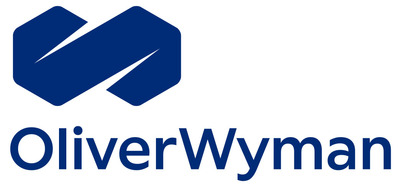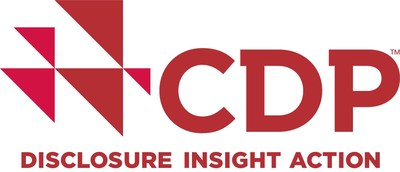- Based on reported emissions targets - if achieved - European companies are in line with a 2.7 °C increase in global warming by 2100.(1)
- The top European companies by decarbonization reported a 15% drop in emissions last year - equivalent to the annual emissions of the Netherlands.
-Switzerland, Denmark and Sweden closest to Paris agreement target of 'well-below 2°C'; Belgium, UK, and Italy have highest temperature, at 3.0°C.
- Almost all banks lending to European companies and many asset managers now say they want to align with Paris agreement - but under 1 in 10 European companies currently meet that standard.
- Capping global warming at 1.5°C would take an 8x increase in the current ambition level of European corporates on emissions, report estimates.
BERLIN, March 2, 2021 /PRNewswire/ -- A €4 trillion mismatch is forming between bank lending that aims to be 'Paris-aligned' and the market for this corporate lending in Europe, according to new analysis from EU-funded non-profit CDP Europe and global management consulting firm Oliver Wyman.

Running hot: accelerating Europe's path to Paris, released today, estimates that 95% of all corporate lending in Europe comes from banks with a Paris-alignment ambition.
But under 1 in 10 European companies so far have emissions targets aligned with Paris' well-below 2°C goal - meaning banks financing these companies are far from Paris-aligned today.2
The research is based on nearly 1,000 European companies worth around 80% of Europe's market value disclosing data in 2020 to CDP, which runs the global environmental disclosure system, and wider market research.
The gap is starting to close. The latest corporate data shows momentum behind better target-setting among companies, with the best decarbonizing fast. 56% of companies report now having a transition plan in place - rising to over three quarters in the energy sector. Encouragingly, over 50% of European companies by market value have now joined the Science Based Targets initiative, which approves whether emissions targets are aligned with the Paris agreement.3
The best companies, in terms of decarbonization, reported total emissions reductions of 15% last year, and cut carbon intensity (emissions per revenue) by one fifth.
But wide differences exist. In the steel and electric utilities sectors, the data shows the best companies are up to 4 times as carbon efficient as the lowest performing. And just 35% of companies in the highest-impact industries are so-far disclosing data on their most important indirect - Scope 3 - emissions, which make up a minimum (and underreported) 80% of all total emissions reported.
The report authors also modeled three potential scenarios for 2030, setting out alternative rates of acceleration in corporate target-setting. Based on this, capping warming at 1.5°C would take an 8x increase in the current ambition level of European corporates on emissions.4
The scenarios are based on CDP scores, which give an overall indication of a company's current climate performance, and CDP temperature ratings, which assigns a temperature pathway to companies based on emissions reduction targets.
The report also points to the key role banks and investors play in achieving this target. Currently, only half of institutions assess if clients or investee companies have Paris-aligned strategies. But without more engagement, the report estimates that in a 'modest acceleration' scenario banks may need to adjust their lending portfolios by 20-30% to meet their Paris goals.
Overall, Europe's corporate sector is on track for 2.7 °C of global warming by the end of the century - with countries ranging from 2.3°C (Switzerland) to 3.0°C (United Kingdom, Belgium, Italy).
The new report is presented today at the CDP Europe Awards, held with the European Investment Bank on Euronews, where speakers include Angela Merkel and the European Commissioner for Financial Stability, Financial Services and the Capital Markets Union.
Maxfield Weiss, Executive Director of CDP Europe, said of the results:
"The European corporate sector is running hot. Based on current ambition, it's on a 2.7°C path of warming - over a degree more than climate science says we need to achieve to prevent climate change's most catastrophic impacts. That leading corporates across many sectors are now setting ambitious targets and delivering emissions reductions is positive, and shows rapid decarbonization is doable. But with less than 1 in 10 companies having ambitious enough targets, our new data shows we need far more action from corporates and financial institutions to make good on our goals. Banks and investors have their own big ambitions: now we need them to engage companies more to raise the level of disclosure and action so we accelerate Europe's path to Paris and to deliver the European Green Deal."
James Davis, Partner, Financial Services and Head of Sustainable Finance Europe, Oliver Wyman, added:
"This year's paper includes encouraging developments, with more than half of companies setting out transition plans, and many making real strides in cutting emissions. But it also shows how much we need to hasten the pace if we are to hit the Paris targets. Many of the region's leading financial institutions have set out a big ambition to align their lending and investments with Paris and that will help create a virtuous circle - those companies who are getting ahead of the transition should find it easier to raise capital."
The full CDP Europe Report is available for download here: www.cdp.net/europeanreport
About CDP
CDP is a global non-profit that runs the world's environmental disclosure system for companies, cities, states and regions. Founded in 2000 and working with over 590 investors with $110 trillion in assets, CDP pioneered using capital markets and corporate procurement to motivate companies to disclose their environmental impacts, and to reduce greenhouse gas emissions, safeguard water resources and protect forests. Over 10,000 organizations around the world disclosed data through CDP in 2020, including more than 9,600 companies worth over 50% of global market capitalization, and over 940 cities, states and regions, representing a combined population of over 2.6 billion. Fully TCFD aligned, CDP holds the largest environmental database in the world, and CDP scores are widely used to drive investment and procurement decisions towards a zero carbon, sustainable and resilient economy. CDP is a founding member of the Science Based Targets initiative, We Mean Business Coalition, The Investor Agenda and the Net Zero Asset Managers initiative. Visit cdp.net or follow us @CDP to find out more.
About Oliver Wyman
Oliver Wyman is a global leader in management consulting. With offices in 60 cities across 29 countries, Oliver Wyman combines deep industry knowledge with specialized expertise in strategy, operations, risk management, and organization transformation. The firm has more than 5,000 professionals around the world who work with clients to optimize their business, improve their operations and risk profile, and accelerate their organizational performance to seize the most attractive opportunities. Oliver Wyman is a business of Marsh & McLennan Companies [NYSE: MMC]. For more information, visit www.oliverwyman.com. Follow Oliver Wyman on Twitter @OliverWyman.
1 Based on disclosed emissions reduction target data analyzed by CDP and weighted by total emissions, using the CDP temperature ratings dataset.
2 Under 10% of companies, weighted by the amount they borrow from banks.
3 https://sciencebasedtargets.org/
4 The potential scenarios modelled suggest that to reach the 1.5°C target, a minimum of 65% of European companies would need to have targets in line with at least well-below 2 °C, and 30% would require 1.5°C targets. This compares to today's 8% and 7% figures.

Logo - https://mma.prnewswire.com/media/1330561/Oliver_Wyman_Logo.jpg
Photo - https://mma.prnewswire.com/media/1447273/CDP_Logo.jpg

